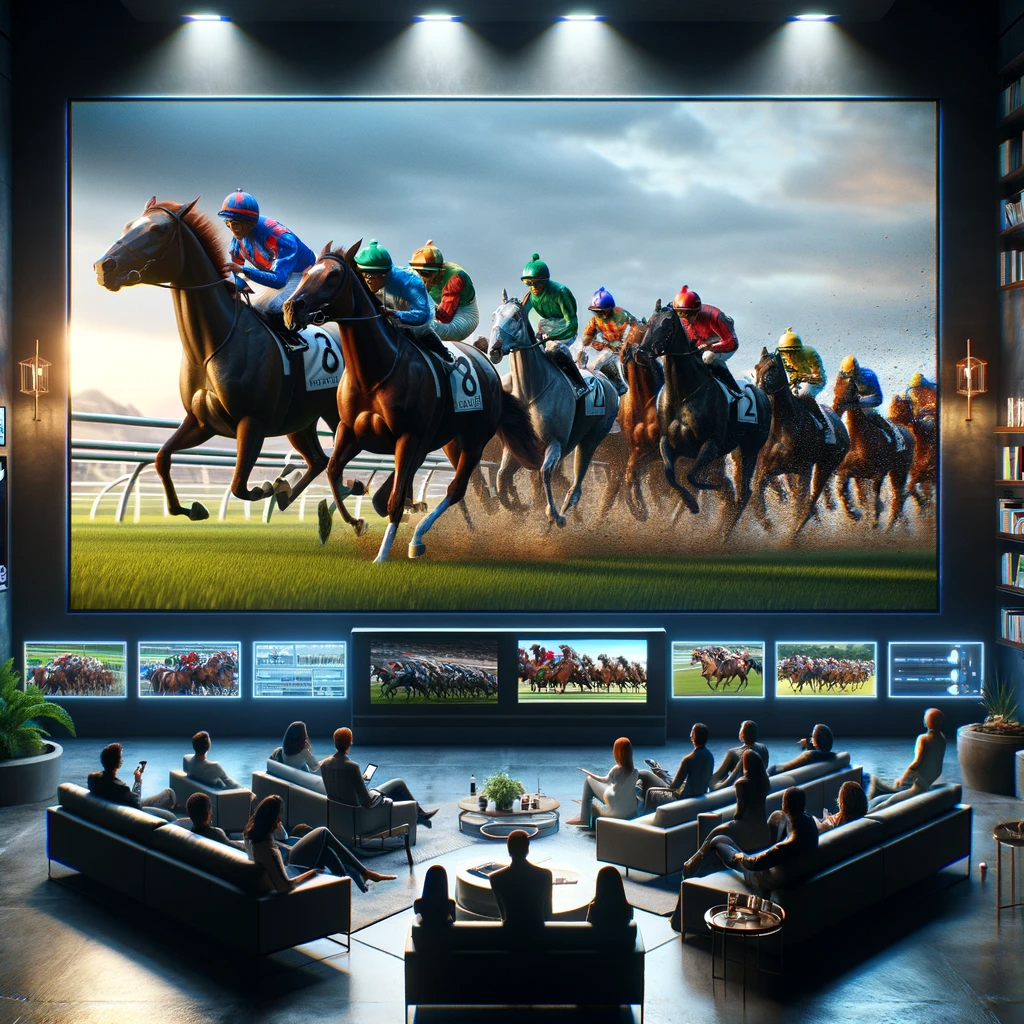Picture the thunderous gallop of hooves, the crowd’s roar, and the sheer elegance of thoroughbreds racing towards the finish line. This captivating scene, a frequent highlight in media, profoundly shapes our perception of the racing world, illustrating the powerful media influence at play.
But there’s more to the story than just the exhilarating moments captured on screen. This article delves into the intricate dance between media coverage and public opinion in the world of thoroughbred racing, exploring how each step influences the other and how the media’s portrayal can make or break the public’s perception.
The Power of the Press – A Two-Sided Coin
The influence of both local and national media in shaping perceptions about thoroughbred racing is undeniable. Media consumption statistics reveal that 65% of industry stakeholders engage regularly with specialized racing media, compared to only 30% of the general public. This disparity underscores the varying degrees of media influence on different audiences.
Positive portrayals in the media, such as heartwarming success stories, the sport’s inherent beauty, and its economic benefits, paint a glamorous picture of thoroughbred racing. However, this is just one side of the coin. Negative portrayals, focusing on controversies and ethical concerns, have a profound impact on public opinion, often overshadowing the positive aspects.
Beyond the Headlines – Unveiling the Untold
Major media outlets frequently overlook certain aspects of thoroughbred racing. Nuanced reporting on complex issues like animal welfare and industry challenges is crucial for a balanced view.
For instance, the role of safety measures in enhancing animal welfare is often underreported, despite its significance in shaping informed public opinion.
The Digital Gallop – Rising Social Media Influence
The realm of social media has brought a new dynamic to media influence. Engagement rates on social media platforms for racing-related content have skyrocketed, with a 120% increase in the past year.
The immediacy and viral nature of social media content provide a stark contrast to traditional media, leading to divergent public opinions.
Voice of the Industry – Balancing Narratives
Insights from industry veterans and media experts highlight the importance of balanced reporting. Integrating perspectives from various industry participants can offer a more comprehensive view of thoroughbred racing.
Additionally, effective public relations strategies play a crucial role in shaping positive media narratives and countering negative stereotypes.
Media Influence – A Race for Perception
In conclusion, the media’s role in shaping public opinion about thoroughbred racing is a complex interplay of positive and negative portrayals. Responsible and balanced media coverage is essential to maintain the sport’s integrity and appeal.
The question then arises: In the race between perception and reality, is the media a mere spectator or a formidable contender in shaping the future of thoroughbred racing?

